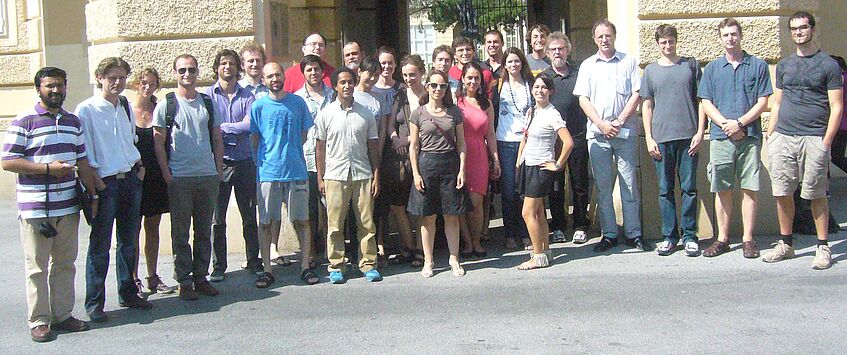USS-SWC 2010 – The Science of the Conscious Mind
The 10th Vienna Summer University was held on July 5–16, 2010.
Lecturers
- Uljana Feest (Technische Universität Berlin)
- Owen Flanagan (Duke University)
- Michael Pauen (Humboldt-Universität zu Berlin)
It is commonly held that psychology began to be practiced "scientifically" in Leipzig in 1879. We will examine what this means, what the regulative metaphysical assumptions, constitutive ideas and techniques of a science of the mind were and are. In doing so, we will give a comprehensive overview over the science of mind, covering historical aspects, systematic problems, and empirical findings.
With respect to the historical contexts in which the scientific study of the conscious mind emerged, special attention will be dedicated to the contentious status of empirical psychology in turn-of-the century epistemological debates, leading up to important work of Carnap, Neurath, Feigl, Hempel and other members of the Vienna & Berlin Circles on the status of Geisteswissenschaften, the mind-brain relation, testability, and reduction. This work directly influenced empirical psychology, especially B. F. Skinner's Radical Behaviourism, which in turn affected the development of work in analytic philosophy of psychology and mind. This foundational philosophical work will also be connected with contemporary issues on neural correlates & neural identities, explanatory gaps, the hard problem(s) of consciousness, the problems of freedom and responsibility, and the prospects for achieving a mature neurophilosophy. Arguments that even a mature science of the mind cannot address certain important topics like the qualia problem will be evaluated from a systematical and a historical perspective. Skeptical positions with respect to the free will and self will be presented as well as experimental work that bears on these issues (i.e. decision making, intentionality, theory of mind, "mirror neurons"). Consequences of philosophical and empirical work for human self-understanding, the legal system, and everyday life will be discussed.
Topics
- Psychology to be practiced “scientifically”
- Regulative metaphysical assumptions
- Constitutive ideas and techniques of a science of the mind
- Comprehensive overview over the science of mind, covering historical aspects, systematic problems, and empirical findings
- Status of empirical psychology in turn-of-the century epistemological debates
- Vienna and Berlin Circles
- Contemporary issues on neural correlates and neural identities, explanatory gaps, the hard problem(s) of consciousness, the problems of freedom and responsibility, and the prospects for achieving a mature neurophilosophy
- Qualia problem from a systematical and a historical perspective
- The self and free will
- Experimental work that bears on decision making, intentionality, theory of mind, “mirror neurons”
- Consequences of philosophical and empirical work for human self-understanding, the legal system, and everyday life
